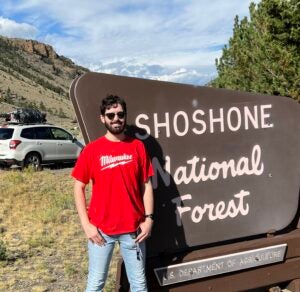
Education: BSc, Chemistry, UConn 2023, BSc, Molecular and Cell Biology, UConn 2023
From: Woodbridge, Connecticut
Outside of Lab: I enjoy dart-throwing. While I was at UConn, I participated in several amateur/semi-pro league tournaments, and even won a few. I enjoy going to art museums and I really like works from Spanish painters. This admiration was inspired by a visit to a special exhibition which had several of Diego Velázquez’s paintings when I was in high school. My other interests are reading, listening to music, watching movies, and playing video games.
Research In David Lab: Determining the role of MUTY in autoimmune inflammatory diseases
Previous Research Experience: During my undergraduate studies, I worked in Dr. Nicholas Leadbeater’s lab at UCONN developing new synthetic methods using oxoammonium salts and studying the reactivity of oxoammonium salts.
